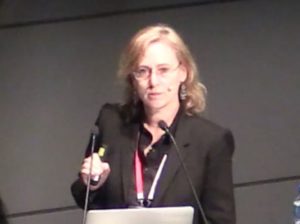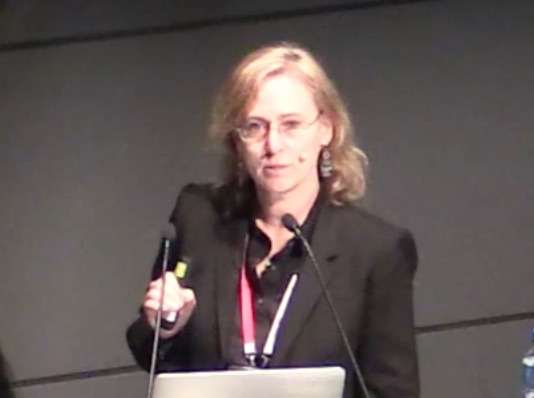
Beth Wingate, Professor of Mathematics at the University of Exeter
In this video from the PASC16 conference, Beth Wingate from the University of Exeter presents: Challenges for Climate and Weather Prediction in the Era of Heterogeneous Computer Architectures: Oscillatory Stiffness, Time-Parallelism, and the Slow Manifold.
“For weather or climate models to achieve exascale performance on next-generation heterogeneous computer architectures they will be required to exploit on the order of million- or billion-way parallelism. This degree of parallelism far exceeds anything possible in today’s models even though they are highly optimized. In this talk I will discuss the mathematical issue that leads to the limitations in space- and time-parallelism for climate and weather prediction models – oscillatory stiffness in the PDE. I will go on to discuss recent successful time-parallel algorithms including the fast-converging asymptotic parareal method and a time-parallel matrix exponential.”
Beth Wingate is a Professor of Mathematics at the University of Exeter. Previous to this she was a Senior Scientist at the Los Alamos National Laboratory. Her recent research is focused on dynamics in the Arctic Ocean, the slow/fast dynamics of the air-sea interface, and time-parallel methods for climate modeling intended to take advantage of increased parallelism available with heterogeneous computer architectures.




